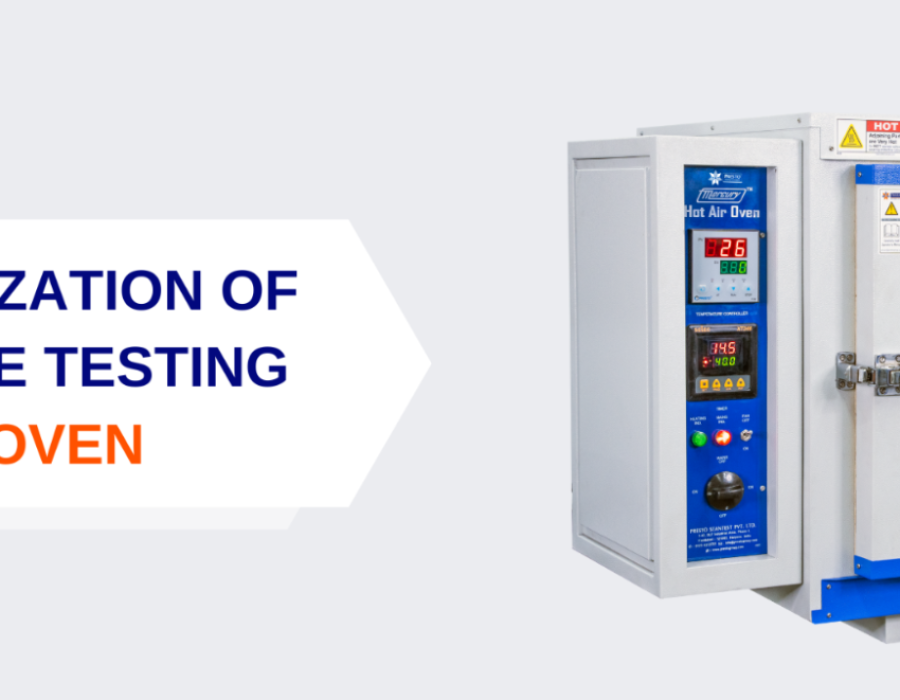Hot air ovens are indispensable tools in the field of microbiology, serving critical roles in ensuring laboratory sterility and the reliability of experimental results. These ovens utilize dry heat to sterilize equipment, glassware, and other materials, making them essential for procedures that cannot tolerate moisture. This blog explores the uses, benefits, and significance of hot air ovens in microbiological applications, focusing on their operational principles and contributions to maintaining stringent hygiene standards.
What is a Hot Air Oven?
A hot air oven is a specialized laboratory equipment designed for sterilization through dry heat. Unlike autoclaves that use moist heat, hot air ovens operate by circulating heated air uniformly throughout the chamber. Temperatures typically range from 50°C to 300°C, effectively eliminating microorganisms by oxidation.
Key Features and Functionality
Hot air ovens feature several essential components and functionalities that make them suitable for microbiological use:
- Temperature Control: Precise temperature regulation ensures consistent and effective sterilization. Microbiologists can adjust settings according to the materials being sterilized, maintaining optimal conditions for microbial destruction.
- Uniform Heating: Advanced airflow mechanisms distribute heat evenly within the chamber, preventing temperature variations that could compromise sterilization efficacy.
- Timer and Alarms: Built-in timers and alarms help monitor sterilization cycles, ensuring adherence to designated time and temperature parameters. This enhances operational safety and efficiency.
- Safety Features: Ovens are equipped with safety mechanisms such as overheating protection and door interlocks to prevent accidents and ensure operator safety.
Uses of Hot Air Ovens in Microbiology
Hot air ovens serve multiple crucial functions in microbiology laboratories:
- Sterilization of Equipment: They are used to sterilize glassware, surgical instruments, and laboratory equipment. The dry heat method is suitable for materials that cannot withstand moisture, ensuring complete elimination of microorganisms.
- Media Preparation: Ovens are utilized to dry and sterilize culture media before use. This step is essential to prevent contamination and ensure accurate microbial growth during experiments.
- Dehydration of Samples: Certain microbiological samples require dehydration before analysis or storage. Hot air ovens facilitate rapid and controlled drying, preserving sample integrity and viability.
- Quality Control: They play a pivotal role in maintaining quality control standards by sterilizing production equipment and ensuring that products are free from microbial contamination.
Benefits of Hot Air Ovens in Microbiology
The use of hot air ovens offers several significant advantages:
- Reliability: Dry heat sterilization is highly effective against a broad spectrum of microorganisms, ensuring consistent sterilization results without the risk of moisture-related damage.
- Cost Efficiency: Compared to autoclaves, hot air ovens are more energy-efficient and cost-effective to operate over time. They do not require water or steam, reducing operational costs.
- Versatility: Ovens can be used for a variety of applications beyond sterilization, including drying, heating, and aging processes in microbiological research.
- Compliance: They comply with regulatory standards for laboratory practices and sterilization protocols, ensuring adherence to safety and quality guidelines.
Importance in Microbiology Laboratories
Maintaining a sterile environment is paramount in microbiology laboratories to prevent cross-contamination and ensure accurate experimental results. Hot air ovens play a critical role in achieving these goals by providing reliable sterilization and decontamination methods. They contribute to the integrity and reproducibility of research outcomes, supporting advancements in medical diagnostics, pharmaceutical development, and biotechnological innovations.
Conclusion
Hot air ovens are indispensable assets in microbiology laboratories, offering efficient and reliable sterilization solutions through dry heat technology. Their versatility, cost-effectiveness, and compliance with industry standards make them essential for maintaining sterile conditions and ensuring the validity of microbiological experiments. As advancements continue in microbial research and laboratory practices, hot air ovens remain integral to supporting the rigorous standards of hygiene and safety that define modern microbiology.






Comments